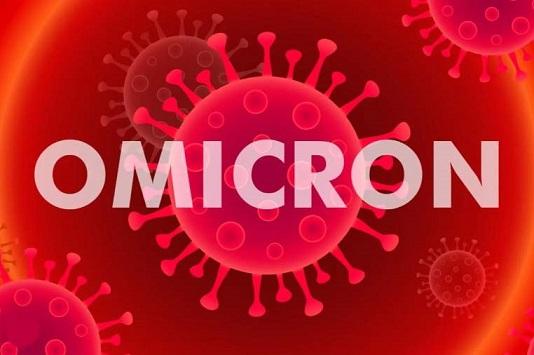While Considered Mild, The Omicron Variant and its Sub-Lineages Causes Hidden Metabolic Damage in the Body!
Nikhil Prasad Fact checked by:Thailand Medical News Team Oct 20, 2025 3 months, 3 weeks, 3 days, 15 hours, 52 minutes ago
Medical News: New research reveals that even after recovery from the Omicron strain of COVID-19, patients continue to show serious metabolic changes that could increase the risk of liver injury and heart disease. Scientists at The First Affiliated Hospital of Zhengzhou University have uncovered key alterations in blood metabolites that not only help explain lingering symptoms but may also serve as new diagnostic indicators. This
Medical News report examines the study in detail and how it uncovers unseen metabolic harm caused by the Omicron variant.
 While Considered Mild, The Omicron Variant and its Sub-Lineages Causes Hidden Metabolic Damage in the Body
Uncovering the metabolic footprint of Omicron
While Considered Mild, The Omicron Variant and its Sub-Lineages Causes Hidden Metabolic Damage in the Body
Uncovering the metabolic footprint of Omicron
The research team analyzed blood samples from 336 Omicron-infected patients, 216 fully recovered individuals, and 380 healthy people using advanced liquid chromatography–mass spectrometry. This large-scale approach allowed scientists to measure hundreds of metabolites — small molecules that reflect the body’s chemical balance.
The results revealed six major metabolic compounds that changed drastically in those infected with Omicron. Five compounds — DL-stachydrine, D-(+)-pipecolinic acid, furazolidone, L-arginine, and 5α-dihydrotestosterone glucuronide — increased significantly, while one compound, prenylcysteine, dropped to unusually low levels. Researchers found that even after recovery, most patients’ metabolic patterns failed to return to normal, hinting at persistent biological stress caused by the virus.
How Omicron disrupts vital body systems
The study found that the increase in L-arginine indicated an impaired urea cycle, a key liver function responsible for detoxifying harmful ammonia. When the urea cycle falters, it signals liver strain and energy metabolism problems. The reduction in prenylcysteine was equally alarming, as it is linked to higher risks of atherosclerosis, a condition that can lead to heart attacks and strokes. These findings suggest that Omicron infection might silently raise the risk of both liver and cardiovascular diseases, even after apparent recovery.
Pathway analysis revealed that Omicron affected 13 metabolic routes, especially those tied to amino acid and energy metabolism. While some systems improved after recovery, pathways related to glycine, serine, and fatty acid oxidation remained abnormal. This persistence shows that biochemical recovery lags behind symptom relief, offering a new explanation for lingering fatigue and weakness seen in post-COVID conditions.
Developing a new noninvasive diagnostic tool
The Zhengzhou University team went further by building a diagnostic model based on the six altered metabolites. The model successfully distinguished Omicron-infected patients from healthy individuals with an impressive 99.7% accuracy. Such a blood-based test could help identify infections early, even among asymptomatic individuals, offering a faster and less invasive way to scre
en populations during outbreaks.
Interestingly, the study also examined the link between blood metabolites and oral microbiota — the microorganisms living in the throat. Researchers discovered strong correlations between changes in oral bacteria and blood chemistry, showing that the virus disrupts multiple biological systems beyond the lungs.
The lasting toll of infection
While Omicron was thought to be milder than earlier strains, this study reveals its stealthy long-term effects. Many patients who tested negative still showed abnormal metabolic activity weeks after discharge. The findings highlight the need for extended care, nutritional support, and follow-up tests even after apparent recovery, as underlying metabolic disturbances may lead to chronic inflammation and cardiovascular complications.
The study findings were published in the peer-reviewed journal: PLOS One.
https://journals.plos.org/plosone/article?id=10.1371/journal.pone.0327297
Even though the Omicron variant may no longer dominate headlines, its newer sub-lineages continues to leave hidden marks inside the body. Understanding these molecular changes is crucial for future treatments and for managing the millions living with lingering post-COVID symptoms.
For the latest COVID-19 News, keep on logging to Thailand
Medical News.
Read Also:
https://www.thailandmedical.news/articles/coronavirus
